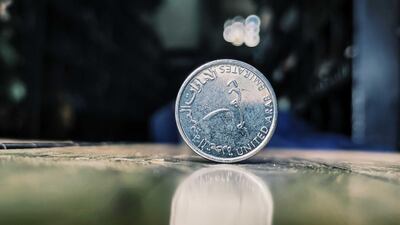Coronavirus has changed the financial landscape across the globe and we are all trying to navigate unknown fiscal waters right now. That's why it can be instructive to look back to clearer times for lessons that still apply today.
When I was but a teenager living in the United States, I saved up for a car. I worked many months serving fast food, umpiring baseball matches and selling in a store I worked at. At the same time, I had to practice some self-control and not blow all the money on more fun things that were more immediately purchasable.
The fateful day finally came. I proudly checked my bank balance and went to buy the car from someone I'd found online who seemed honest. I got lucky too. The car was in good condition and the previous owner even took a chunk off the asking price because I was paying in cash. I was jubilant with my newfound independence and adulthood.
What young, naive Zach didn’t consider were the recurring costs associated with this purchase. I forgot about the annual insurance and the regular maintenance was a new experience as well. I even learnt an expensive lesson on how much the government takes to register the car and issue a licence plate. I knew about the price of petrol, but that was pretty much where my understanding of car ownership costs ended.
While I wasn’t taken advantage of by anyone and I was very fortunate to be able to buy a car at such a young age, there are two problems with this tale. The first is that I allowed my focus on the upside of independence to blind me to the true costs of car ownership.
The second is that I worked really hard for months, and sacrificed a lot of other opportunities, to buy a car that immediately depreciated in value and needed money injections in terms of regular maintenance, insurance, petrol and taxes.
I hadn’t really saved money at all. I had just deferred spending to a later date. When we “save up” money just to spend it later, it’s not actually saving money.
This slightly odd definition of saving money is based on the idea that in order for us to actually save money, we need to not spend it, especially on liabilities such as cars, holidays, clothes or anything else that doesn’t generate income.
To really save, money needs to either go into an emergency fund that hopefully earns some safe interest, or into buying assets such as stocks, bonds or real estate that earn us more than they cost. When we wisely buy assets like this, our money helps build the freedom and safety of our future, where we aren’t reliant on a job that we can lose.
This is especially important right now, with the uncertainty that coronavirus has placed on all of us. We are seeing just how fragile our jobs can be, so now is the time to put off plans for big purchases until things are more settled. It's not "never", it's just "not now". Build your emergency fund, then maybe, if you have six to 12 months' of expenses stored up, then you can think about investing while prices are still low. But first, get your cash situation sorted.
If we buy expensive liabilities such as cars, they can become financial vampires attached to our wallets as the hidden or unrecognised costs continue to drain us for years to come. This is even more dangerous at a time when we can't be certain we can actually pay those bills.
Don’t get me wrong, it’s better to buy things with money we actually have because we’ve “saved up” for it than to just put it on a credit card. The credit card route is doubly dangerous because not only do we have the repeating costs of maintaining whatever expensive thing it is, but we also then have to pay exorbitant interest rates on the card itself. Annual rates can be as high as 45 per cent per year.
So if your options are “saving up” for it or putting it on plastic, by all means, save up. But don’t fool yourself that you’re actually saving that money. All you’re doing is just putting the payment off to a later date. Saving your money "for real" during this health crisis will ensure you are not only protected from losing your job now, but that your finances remain secure long after the pandemic is over.
Dubai schoolteacher Zach Holz (@HappiestTeach) documents his journey towards financial independence on his personal finance blog The Happiest Teacher

